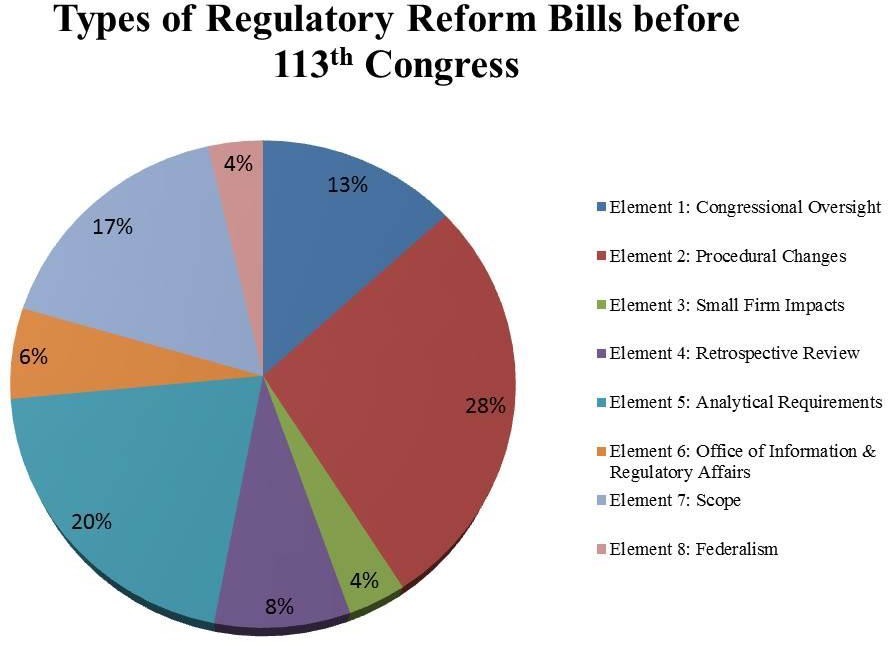The 113th Congress is considering various bills that would reform the way regulations are developed, analyzed, and reviewed. The GW Regulatory Studies Center has tracked and classified these bills since the beginning of the 113th Congress and will continue tracking and updating the information regularly throughout its duration. By classifying each bill according to its approach to regulatory reform, based on the reform elements below, we hope to shed some light on the types of reforms being considered and their status.
|
Currently, the 113th Congress has introduced 33 regulatory reform bills--twenty-one in the House and twelve in the Senate. Since the start of 2014, three new regulatory reform bills, all of which vary in their reform elements, have been introduced.
The Federal Sunset Act of 2014 (H.R. 3874) introduced by Representative Richard Hudson [R-NC- 8] on January 14th would establish a commission to provide for the periodic review of the efficiency and public need for Federal agencies, and abolish the agencies for which a public need does not exist.
The Secret Science Reform Act of 2014 (H.R. 4012) introduced by House Representative David Schweikert [R-AZ-6] on February 6th would prohibit the Environmental Protection Agency from proposing, finalizing, or disseminating regulations or assessments based upon science that is not transparent or reproducible. The Federal Communication Commission Process Reform Act of 2014 (S. 1989) introduced by Senator Dean Heller [R-NV] on February 4th would amend the Communications Act of 1934 to provide for greater transparency and efficiency in the procedures followed by the Federal Communications Commission. Representative Greg Walden [R-OR-2] introduced this bill’s counterpart in the House (H.R. 3675) in December 2013.
The figure below classifies bills by the type of change they would implement. Twenty-three of the bills currently under consideration in Congress would change the procedures by which agencies develop regulations; this is the most common reform element used. Seventeen of the bills would modify the analytical requirements, including benefit-cost analysis, used to support regulations; and fourteen of the bills target a particular agency or narrow group of rules. Bills that would require procedures to evaluate or reduce small business impacts or modify the role of states with respect to a regulatory issue are the least common reform elements for the bills being tracked. It is important to note that most bills are cross-cutting in scope and focus and can be classified using multiple reform elements. For example, we classify one bill, Unfunded Mandates Information and Transparency Act of 2013 (H.R. 899) introduced by Representative Virginia Foxx [R-NC-5] in February 2013, as having five reform elements—more than any other bill under consideration.


